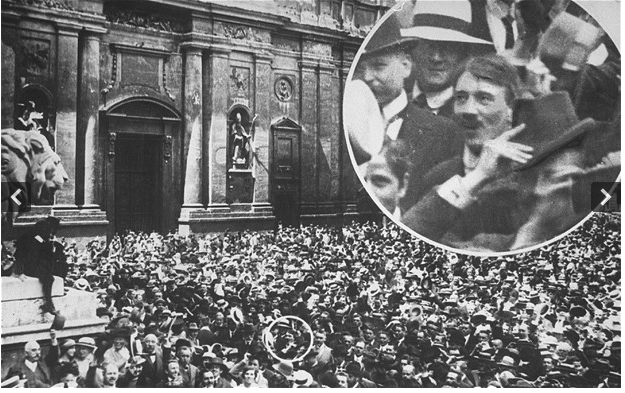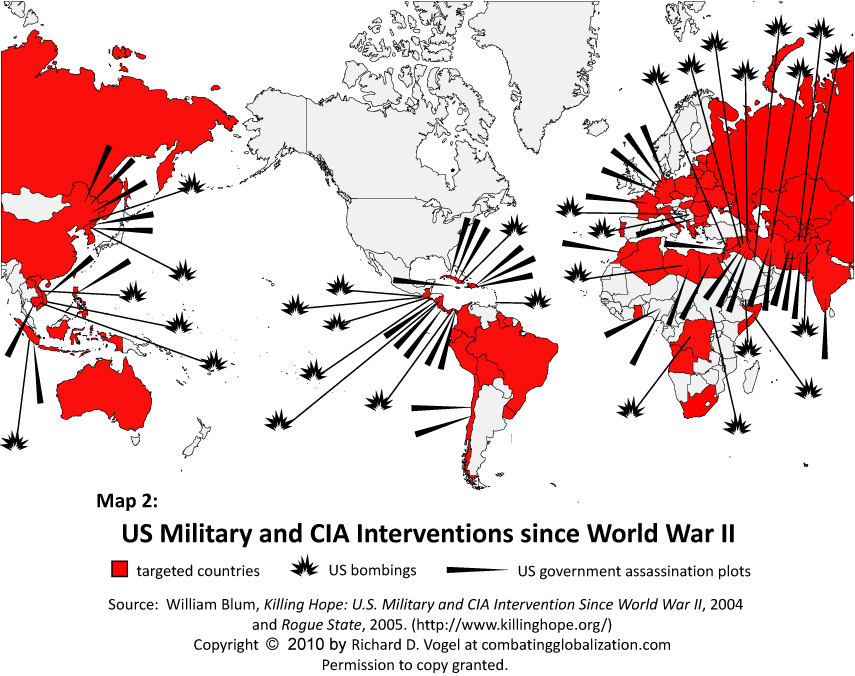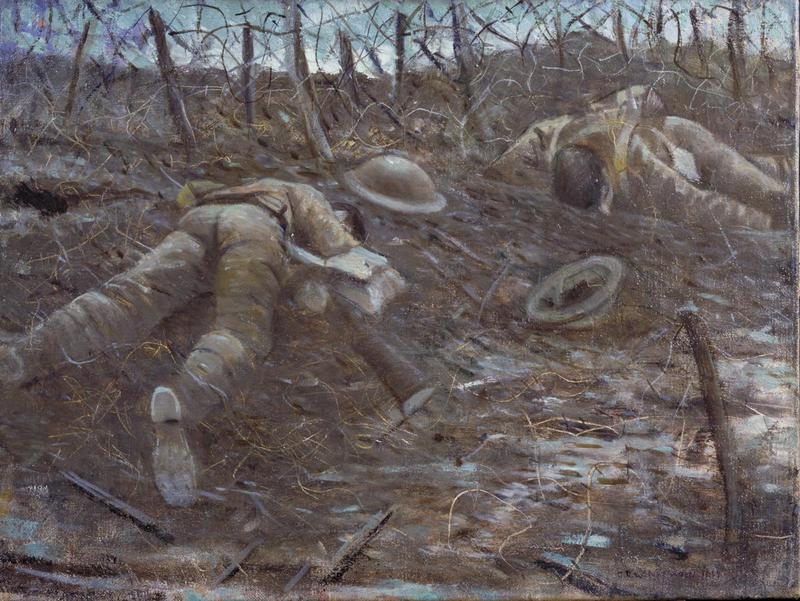***The following was written by Rev. Emmanuel Charles McCarthy***
Friends,
100 years ago today, on June 28,1914, an Orthodox Christian man, Gavrilo Princip, shot and killed a Catholic Christian man, Franz Ferdinand in Sarajevo. This lit the fuse that the arms dealers, called ‘the merchants of death’ after the war, had been trying to light for some time. A feverish frenzy of mutual homicidal violence and destruction, on a scale never before seen, began to engulf Europe. World War I had commenced.
Approximately 65 million combatants fought in Word War I, each of whom was the precious and beloved child of some mother or father, each of whom was deceived by the rulers of their states and their Churches to believe that what they were embarking upon was a holy war for God and country. Bishops, priests and minister on all sides blessed, in the name of Jesus, their choice to do their manly duty in spreading the heinous conflagration of World War I.
Central Powers: 22,850,000
Germany – 11,000,000
Austria-Hungary – 7,800,000
Ottoman Empire – 2,850,000
Bulgaria – 1,200,000
Allied Powers: 42,632,000
Russia – 12,000,000
British Empire – 8,904,000
France – 8,410,000
Italy – 5,615,000
United States – 4,744,000
Japan – 800,000
Romania – 740,000
Serbia – 707,000
Belgium – 267,000
Greece – 230,000
Portugal – 65,000
Montenegro – 50,000
With the exception of the Ottoman Empire all the nations on both sides in this campaign of mass human slaughter and destruction were ruled by Christians and had majority Christian populations.
These were the Christians who in 1914-1918 were “our heroes.” They are all now dead. Each is now where he wanted to put the enemy a hundred years ago—in the grave. So, where are they now besides the grave? Heaven? Hell? Are they now? Who cares now? Who will ever care? But “our heroes” of today, 2014, will never be forgotten! They will forever live in glory in the hearts and minds of future generations. What claptrap! This is just the ancient deceitful patriotic and military propaganda ploy used to snookers young people into laying down their lives, their sanity, their health, their time, their family, the truth taught by Jesus and their consciences for the “state,” and to abandon themselves to the whims and wishes and interests and orders of the local economic, military and political titans.
Starting on this date, a hundred years ago, sixty-five million human beings, mostly Baptized Christians, fell for this lie and went the way of achieving everlasting glory by killing, terrorizing, torturing and maiming tens upon tens of millions of their fellow human beings and fellow Christians—with Jesus as their spiritual support person. These Christian went from glory to glory via homicidal violence in the Verdun, at the Somme, in Ypres, to name but a few stops on the glory road “our heroes” traveled between 1914-1918.
Of course such a road to glory would have been considered asinine by any sane follower of Jesus, if the states and the institutional Churches had not unrelentingly worked together to craft from the cradle the minds and souls of children, through the glorification of militarism, into the lie that the road to glory lay not in unconditional fidelity to the Way of the Nonviolent King of Glory, Jesus, but rather in unconditional obedience to the way to glory as taught by the entrenched sociopaths at the top of the economic, political, military and church institutions of their individual tribes. Such brain washing was so successful because the Churches’ leaders cooperated fully in hardwiring into children the absurdity that the way to glory as taught by the local big shots was the same way to glory as the Way of Jesus. And, as Voltaire with prophetic clarity observed hundreds of years earlier, “Those who can make you believe absurdities can make you commit atrocities.” As history makes clear, holy atrocities, Christlike atrocities, as a way to everlasting glory were the bread and butter of WW I. But, there is nothing new here! Atrocities root in absurdities is Constantinian Christianity has engaged in since it came on stage as a faux witness to Jesus and His Way seventeen hundred years ago.
Below is a photo of the grave of Gavrilo Princip at St. Mark’s Orthodox Serbian Cemetery in Sarajevo. As noted above he is the man who fired the first shot in the deranged orgy of homicidal violence that left fourteen million human beings dead and thirty-seven million human beings maimed in a four years period. The cenotaph at the grave was erected in 1914 by the Orthodox Community of St. Mark’s to honor Gavrilo Princip and his fellow assassins, most of whom were executed in 1914. The marker at the gravesite reads, Heroes of Vidovdan. Vidovdan is a Serbian Orthodox religious holiday in honor of St. Vitus, whose feast day is June 28.

Such are the glories of Constantinian Christianity Orthodox style. But Catholic and Protestant Christianity matched in infidelity and in blood the glories of Orthodox Christianity during World War I. The most famous Protestant preacher in the United States at the time was Billy Sunday. He pretty much summed up Protestant infidelity to the Jesus of the Gospels and His Teaching during WW I by exciting crowds of Christians to a fever pitch with such evocative sound bites as, “I tell you brothers and sisters, it is [Kaiser] Bill against Woodrow, Germany against America, Hell against Heaven.”
The American Catholic Church leadership jumped in to do its part in plowing under the road to glory approved and taught by Jesus. On April 18, 1917, Cardinal Gibbons, the Archbishop of Baltimore, wrote in a letter to President Woodrow Wilson, which is signed not only by him but also by all the other U.S. Archbishops. It reads, “We are all true Americans … Inspired by the holy sentiments of truest patriotic fervor and zeal, we stand ready, we and all the flock committed to our keeping, to cooperate in everyway possible with our President and our national government, to the end that the great and holy cause of liberty may triumph. Our people, as ever, will rise as one man to serve the nation.” Cardinal Gibbons, on the threshold of the U.S. entrance into the demented hellhole of WWI in 1917, continually and sternly told Catholics that when war is declared “the duty of a citizen [is] absolute and unreserved obedience to his country’s call.”
In England during WW I the notion of a Christian duty to fight in homicidal warfare was nearly universal among the Anglican clergy. Those expressing Christian pacifism as a possible alternative were virtually nonexistent during the war. In fact, academic history is unable to find a single man who had taken Anglican Orders who denounced the war for the reasons traditionally put forth by those who believed that Jesus was nonviolent and commanded a Way of Nonviolent love of friends and enemies for His disciples. However, the theology that it was a Christian duty to fight for God and King was all but universal among Anglican clergy and their congregations.

In 1915 the Anglican Bishop of London, Arthur Winnington-Ingram, called for the men of England to “band in a great crusade -we cannot deny it- to kill Germans. To kill them, not for the sake of killing, but to save the world; to kill the good as well as the bad; to kill the young men as well as the old, to kill those who have showed kindness to our wounded as well as those fiends who crucified the Canadian sergeant, who superintended the Armenian massacres, who sank the Lusitania… and to kill them lest the civilization of the world should itself be killed.” His Excellency went further, giving the war a crusading touch the equal of Billy Sunday’s, by adding, “As I have said a thousand times, I look upon it as a war for purity, I look upon everyone who dies in it as a martyr.”
In France belief that Germany was an amoral nation unified not only French Catholics, but also the nation as a whole, and it gave the country a moral obligation to win the war. Modris Eksteins wrote “French clergymen dressed Jesus in khaki and had him firing machine guns. The war became one not of justice but of righteousness. To kill Germans was to purge the world of the Antichrist…and to herald the New Jerusalem.”
In Germany the pulpits and the Christians were inebriated on the same drug of self righteous, homicidal Constantinian Christian violence as were their enemies in France, England, Russia and the United States.

Adolf Hitler at a rally in the Munich Odeonsplatz to celebrate the declaration of war, August 2, 1914. It is the great deception of evil that it convinces people that once they choose it, they can control it.
How blind must the blindness have been of those Christian prelates of distinction—and of no distinction—who believed they could serve two masters, Jesus and a nation engaged in a glorious homicidal orgy? How terrible that they used their office to pied-pipered millions of mothers’ son down the garden path to physical, mental, moral and spiritual destruction—and all in the name of Jesus.
In summing up why he wrote his most recent book, The Great and Holy War: World War I a Religious Crusade, Philip Jenkins says,
“The most important thing is to understand what shapes the world’s modern religious history. This story is important for any efforts at interreligious dialogue and understanding. Westerners today often assume that Islam is some dark militaristic doomsday cult because of its willingness to support armed violence, but just a hundred years ago, Christian nations were doing very much the same thing. We don’t have to go back to the Crusades to find eerie parallels among Christians to the jihadi mind set.”
I would add that Christianity today does not even have to go as far back as World War I to find such parallels. Today’s newspaper, secular or Christian, will reveal both a latent and active Christian jihadi mindset among ecclesiastics and laity, for those who have eyes to see and a mind to understand.
In fairness, before concluding this reflection on WW I, it should be specifically noted that Pope Benedict XV (1914-1923) subordinated everything to the moral and evangelical condemnation of war. In language that other Popes have reserved for the Mafia, Benedict XV said to the heads of nations and the world at large, “The rulers of the peoples should be satisfied with the ruin already wrought.” To everyone he proclaimed, “You are children of the same Father in Heaven.” In a public Mass at St. Peter’s in July of 1916 at which five thousand children received their First Holy Communion, Benedict XV said to the children and to the world, “You know, my children, how for two long years men who were once innocent and affectionate like you, and are so no longer, have been tearing each other apart and killing each other… May God spare you and your household and the entire world from this.” But alas, what he said and what he called for, “Peace without victory,” the economic, political and military elites on all side, as well as, all clergy on all sides utterly ignored, even his own Catholic bishops and priests.
Your blessing priest, make haste!
For we have no time to waste;
We must be dying, dying, dying,
Our Emperor’s greatness glorifying!
-Bertolt Brecht (Germany, 1917)
“To see what is in front of one’s nose needs a constant struggle,” writes George Orwell. One would think that the carnage and agony of World War I, produced and suffered by mostly Christians, would awaken the leadership of the Churches to the fact that it is preposterous and monstrous for them to maintain that war, and the acts that war requires, are consistent with the teaching of Jesus, with the Will and Way of God as reveled by Jesus in the Gospels, with following Jesus, with fidelity to Jesus, with loving Jesus. But, it didn’t and it hasn’t! Why does this depravity, of Churches justifying their communicants participating in war as a way of following Jesus, still find a welcoming abode in the institutional Churches and in the hearts of their leaders? This is a mystery, a mystery only a scintilla short of the mystery of evil itself.
On June 28, 1914, a Christian man killed another Christian man and woman. His Church honors him as a hero for his homicidal deed on behalf of the local Christians. Nothing new here! Christians and Churches have done the same things ten of millions of times during the last seventeen centuries. Open the newspaper for June 28, 2014, and you will find one or many reports of the same charade of glory and faithful discipleship.
I will leave the second last word in this reflection on the hundredth anniversary of the culturally accepted date for the beginning of World War I to Jonathan Dyson, who lived a hundred years before World War I in England. He was a Quaker, who wrote a few well thought out monographs on Christian pacifism and the way of peace. The following is from his An Inquiry into the Accordancy of War:
“It is the will of God that war be eventually abolished and Christianity is the means by which this is to occur. Christianity with its present principle and obligations is to produce universal peace. It is because we violate the principle of religion, because we are not what they require us to be, that wars continue.”
The last word belongs to the Word, Jesus:
As He drew near and saw the city, he wept over it, saying, “If only this day you knew what makes for peace” (Lk 19:41-42)




